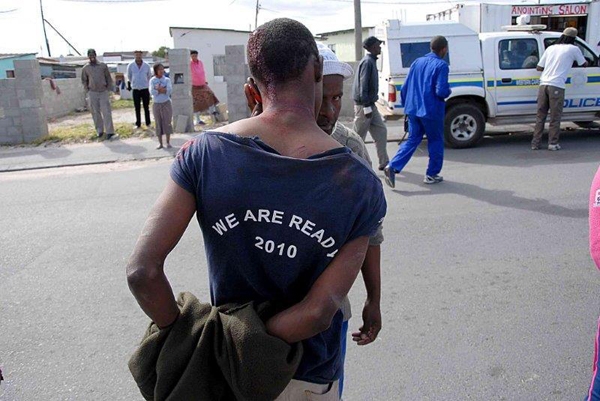Western Cape crime stats to be monthly

According to a report by the Khayelitsha Commission of Inquiry released in August, the crime statistics for the three police stations in Khayelitsha when combined, record the highest number of violent crimes in the country year on year. The national crime statistics were released on Friday in Pretoria and they show that there has been a decrease in contact crimes (such as murder, sexual crimes, assault and robbery) from last year in Khayelitsha.
Murder from April 2012 to March 2013 was at 168; this number has decreased for 2013/2014 to 146.
Sex related crimes were 246 and have decreased to 233.
Assault with intent to inflict grievous bodily harm was 707 in the 2012/2013 year and has decreased to 687 in the 2013/2014 year.
But robbery with aggravating circumstances has jumped to an alarming number — 1,185 from 989 in the past year.
The Social Justice Coalition (SJC), who has been at the forefront of campaigning for safer communities, say even though the crime statistics show an improvement, there is still “serious intervention needed”.
Joel Bregman, the SJC’s policy, communication and research manager, said that while there had been some very modest improvements in key crime categories (murder, sexual assault and attempted murder), Khayelitsha as a whole still experienced extremely high levels of crime and there had been worrying increases in categories such as robbery with aggravating circumstances.
“What these figures tell us is that there are still unacceptably high levels of crime and violence and that serious intervention is needed. It is clear from the evidence at the Khayelitsha Commission of Inquiry that SAPS in Khayelitsha have a lot of work to do to get their affairs in order and to be a truly effective and well run organisation.
“At the same time, the crime stats are reflective not only of the failures or successes of the police, but of the greater criminal justice system, government and society as a whole. Police alone cannot stop all crimes from taking place or create a safe environment, there needs to be a coordinated approach from all state agencies and a whole range of community stakeholders.
“When compared with more affluent areas in the province, places like Khayelitsha and other poor, working class areas, continue to experience the brunt of violent crime and the overwhelming majority of serious violent crime is recorded in places such as Khayelitsha, Mitchell’s Plain, Gugulethu, Nyanga, Delft, Bishop Lavis and others,” said Bregman.
Ndifuna Ukwazi’s safety, policing, and justice researcher Craig Oosthuizen said tha the burden of crime fell most heavily on poorer communities because of inadequate resourcing of police and detectives.
“If you look at all three stations in Khayelitsha, you can see that ‘more-policeable’ crimes such as robbery and drug-related crimes have actually increased. We also know from the Commission of Inquiry that a lack of trust in the police leads to under-reporting of many types of contact crime, such as assault and sexual assault. Murders have also gone up significantly at Harare station, although only 35 percent of murders result from more policeable crimes,” said Oosthuizen.
According to the provincial crime statistics, areas that had the most murders were Nyanga, Khayelitsha, Delft, Mitchell’s Plain and Bishop Lavis. For gang murders, the areas were Mitchell’s Plain, Bishop Lavis, Delft, Elsies River and Philippi. Murders increased by 12.8 percent from 2012/2013 to 2013/2014.
According to provincial police commissioner Arno Lamoer, who addressed media at a briefing in Gugulethu on Monday, the increased levels of crime in the Western Cape were driven by substance abuse.
Other contributing factors to contact crime were large, densely populated informal housing areas, intolerance level, socio-economic factors and lack in social skills to resolve issues without violence.
Community safety MEC, Dan Plato said in order to curb the year on year increases in crime in the Western Cape, following the release of the annual crime statistics on Friday, he had decided to take the necessary “pro-active measures to ensure that we see positive changes in the Western Cape’s crime statistics, reduce crime and create safer communities.”
“I have instructed my department to ensure that all regulations pertaining to the Community Safety Act 3 of 2013 are implemented no later than January 2015. This includes that the provincial commissioner must report in writing and within the prescribed time period, provide statistical information regarding the number and nature of crimes reported to the police. I have instructed my department to specify that the provincial commissioner must provide these regular crime statistics on a monthly basis,” said Plato.
Support independent journalism
Donate using Payfast

Don't miss out on the latest news
We respect your privacy, and promise we won't spam you.
Next: Heritage Day: is it a cultural event or just a chance to have fun?
Previous: Pollsmoor inmates give back to society

This article is licensed under a Creative Commons Attribution-NoDerivatives 4.0 International License.
